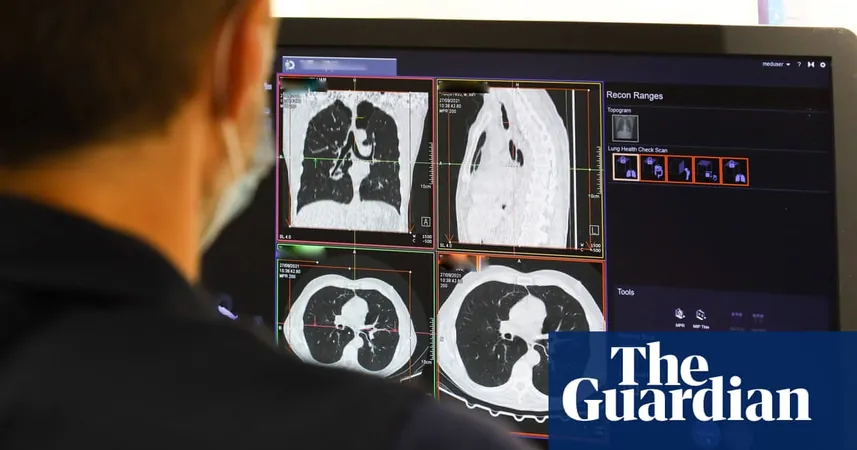
Alarming Findings: British Bangladeshi Men Have Highest Lung Cancer Rates in England
2024-11-14
Author: Wei Ling
Introduction
A recent study has unveiled a shocking truth: British Bangladeshi men are facing the highest rates of lung cancer in England. An extensive analysis conducted by researchers from the University of Oxford examined the health records of 17.5 million individuals, revealing significant disparities in how lung cancer affects different ethnic communities across the nation.
Study Findings
The study, published in the prestigious journal *Lancet Regional Health - Europe*, highlights that factors like 'ethnic background and social circumstances' play vital roles in the risk and development of lung cancer. In fact, the research identifies that individuals residing in the most deprived areas are twice as likely to develop lung cancer compared to those in affluent areas—215 cases per 100,000 people in poorer regions versus just 94 cases in wealthier neighborhoods.
Gender and Ethnic Disparities
This disparity is also evident among women, where lung cancer rates in deprived areas reach 147 per 100,000, in stark contrast to 62 among the least deprived. Among the different ethnic groups studied, Bangladeshi men exhibited the highest incidence of lung cancer, followed closely by white, Chinese, and Caribbean men. Meanwhile, women, particularly those from Indian, Caribbean, Black African, Chinese, and other Asian backgrounds, are twice as likely to be diagnosed with adenocarcinoma, a common lung cancer type.
Factors Influencing Diagnosis
Dr. Daniel Tzu-Hsuan Chen, who led the research, emphasized that 'this isn’t just about smoking,' underlining that social and ethnic factors significantly affect cancer risk and progression. Alarmingly, individuals in lower socioeconomic areas are 35% more likely to be diagnosed with aggressive forms of the disease. The study also notes that men and current smokers tend to be diagnosed at later stages compared to women and non-smokers.
Government Initiatives
This revelation coincides with the implementation of a targeted lung cancer screening program by the government, designed to aid in early detection and prevention. By March 2025, the program aims to screen 40% of the eligible population aged 55 to 74, ultimately reaching 100% by 2030. The initiative focuses on those registered with GPs and who have a history of smoking, to combat the high rates of late-stage lung cancer treatments which place a significant financial burden on the NHS.
Pilot Program Success
A successful pilot program in 2019 invited 900,000 participants for checks, yielding promising results—over 2,000 people were diagnosed with cancer, and 76% of those were caught early, compared to only 29% before the pilot commenced. Screening is set to take place in mobile units located in accessible areas such as supermarket parking lots, targeting deprived neighborhoods where smoking rates are disproportionately high.
Conclusion
The Oxford researchers hope their findings will illuminate the intricate ways in which healthcare access, ethnicity, and class impact cancer outcomes. 'We need to ensure our cancer services effectively reach all communities, granting everyone the same opportunity for early diagnosis,' stated Prof. Julia Hippisley-Cox, a senior author of the study. Addressing these health disparities is crucial not just for lung cancer, but for enhancing overall health outcomes across various diseases. The results of this study serve as a crucial reminder of the urgent need to tackle inequalities in healthcare access and social deprivation to foster a healthier future for all communities.


 Brasil (PT)
Brasil (PT)
 Canada (EN)
Canada (EN)
 Chile (ES)
Chile (ES)
 España (ES)
España (ES)
 France (FR)
France (FR)
 Hong Kong (EN)
Hong Kong (EN)
 Italia (IT)
Italia (IT)
 日本 (JA)
日本 (JA)
 Magyarország (HU)
Magyarország (HU)
 Norge (NO)
Norge (NO)
 Polska (PL)
Polska (PL)
 Schweiz (DE)
Schweiz (DE)
 Singapore (EN)
Singapore (EN)
 Sverige (SV)
Sverige (SV)
 Suomi (FI)
Suomi (FI)
 Türkiye (TR)
Türkiye (TR)